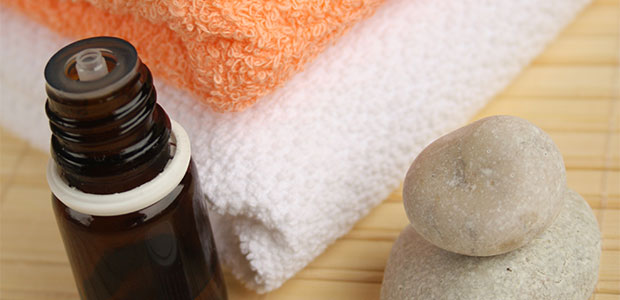Advertisement
Chronic Vaginal Irritation
Chronic vaginitis affects women of all ages and is one of the most common gynecologic problems. Happily, this condition is highly treatable in the majority of women, once the contributing factors are properly understood. Constant or intermittent vulvar and vaginal irritation, itching, redness or swelling it’s a very uncomfortable and frustrating condition, often augmented by … Continued

Chronic vaginitis affects women of all ages and is one of the most common gynecologic problems. Happily, this condition is highly treatable in the majority of women, once the contributing factors are properly understood. Constant or intermittent vulvar and vaginal irritation, itching, redness or swelling it’s a very uncomfortable and frustrating condition, often augmented by well-meaning, but misguided, attempts at treatment by practitioners who are not aware of the full scope of the problem.
Many women are encouraged to repeatedly administer conventional yeast treatments, the most common being over-the-counter topical antifungals or, more recently, single-dose prescription pills. Though these can be effective in an isolated episode, women with chronic irritation usually experience no effect or only temporary relief from these medications. In fact, I have met many patients who have been encouraged to take the oral antifungal pill on a monthly basis; clearly, the underlying problem is not being addressed.
Successive vaginal cultures are often negative and many women eventually give up on ever finding a cure. They resign themselves to a life of irritation. The effects on intimate relationships can be devastating.
The Yeast Connection
Candida is a common culprit but it should only be treated if cultures are positive. If cultures are negative, assume the problem lies elsewhere. The approach in a chronic situation is very different from treating a single episode. The emphasis should be on eliminating factors that contribute to yeast proliferation.
A whole foods diet that restricts refined sugar and flour, yeast and dairy is a good starting point. Antibiotic use should be avoided if at all possible, as broad-spectrum antibiotics destroy the body’s normal bacterial flora and set the stage for yeast overgrowth. If antibiotics are absolutely necessary, supplement with natural bacteria such as acidophilus and bifidus. These probiotics replace and support your body’s good bacteria, creating a strong immune barrier and healthy, candida-resistant tissues.
For those with documented recurrent vaginal candida, one should also consider the source. In some cases the sexual partner may be reinfecting the woman and needs to be treated. In others, the yeast may originate in the bowel, which is why it is advised to always “wipe from front to back.” Bowel colonization with candida is typically found in people with a long history of antibiotic and/or oral contraceptive use. In this situation, natural health practitioners are the best resource for natural remedies to eradicate the yeast and restore the balance of normal flora.
Lifestyle Factors
If candida is not the source of your woes, it’s time to look elsewhere. The following suggestions apply particularly to those with no evidence of infection, but can be helpful in any case of vaginal irritation:
- Minimize exposure to chemicals and perfumes. Our chemical-laden environment is particularly hard on the delicate vulvar and vaginal tissues and should be the first target. Chemicals and perfumes are everywhere; they can be found in tampons and pads, soaps, bubble baths, detergents, lotions and even toilet paper. Use natural products as pure as possible. One of my patients was relieved from years of vaginal discomfort by simply eliminating the commercial fabric softener she had always added to her laundry. Perfumes in any form can be highly irritating.
- Keep the area cool and dry. Wear white natural cotton underwear if
possible and don’t wear panties at night. Dry off thoroughly after sexual activity and bathing some experts even recommend using a blow dryer (on cold setting)! Avoid synthetic workout wear and tight restrictive clothing. Cut the crotch out of pantyhose to let the area breathe. Be conscious of how you sit; sitting for hours with your legs crossed can generate too much heat. Use just enough blankets at night to be comfortable without overheating. Only use panty liners while menstruating. Daily use can increase vaginal discharge and moisture. - Support your immune system and normal flora. Learn to manage stress. Take time to relax and nurture yourself. Eat a nutritious diet with sufficient protein and include supplements to address your individual health needs. If you use dairy products, choose cultured and organic to minimize your exposure to unnecessary hormones. Douching can disrupt the balance of your bacterial flora. Again, taking probiotics is one of the best means to support or rebalance your natural flora.
Chronic vaginal irritation is not a life sentence. There are many different actions to increase your chances of healing and enjoying an irritation-free life. Live naturally.
Natural Remedies Against Candida
Topical/External Remedies:
- Gentian violet your health care practitioner can apply this intravaginally.
- Tea tree oil use as a vaginal suppository or add drops of the oil to a warm bath.
Oral Remedies:
- Pau d’arco this extract from the bark of the South American Tabebuia impetiginosa tree has powerful anti-candida properties.
- Citrus seed extracts grapefruit seed extract is thought to be equal in strength to prescription antifungal medications.
- Caprylic acid a fatty acid found in coconut oil which combats candida overgrowth in the bowel.
These are only a few examples. Be sure to consult with your health care practitioner before beginning any treatment program.




